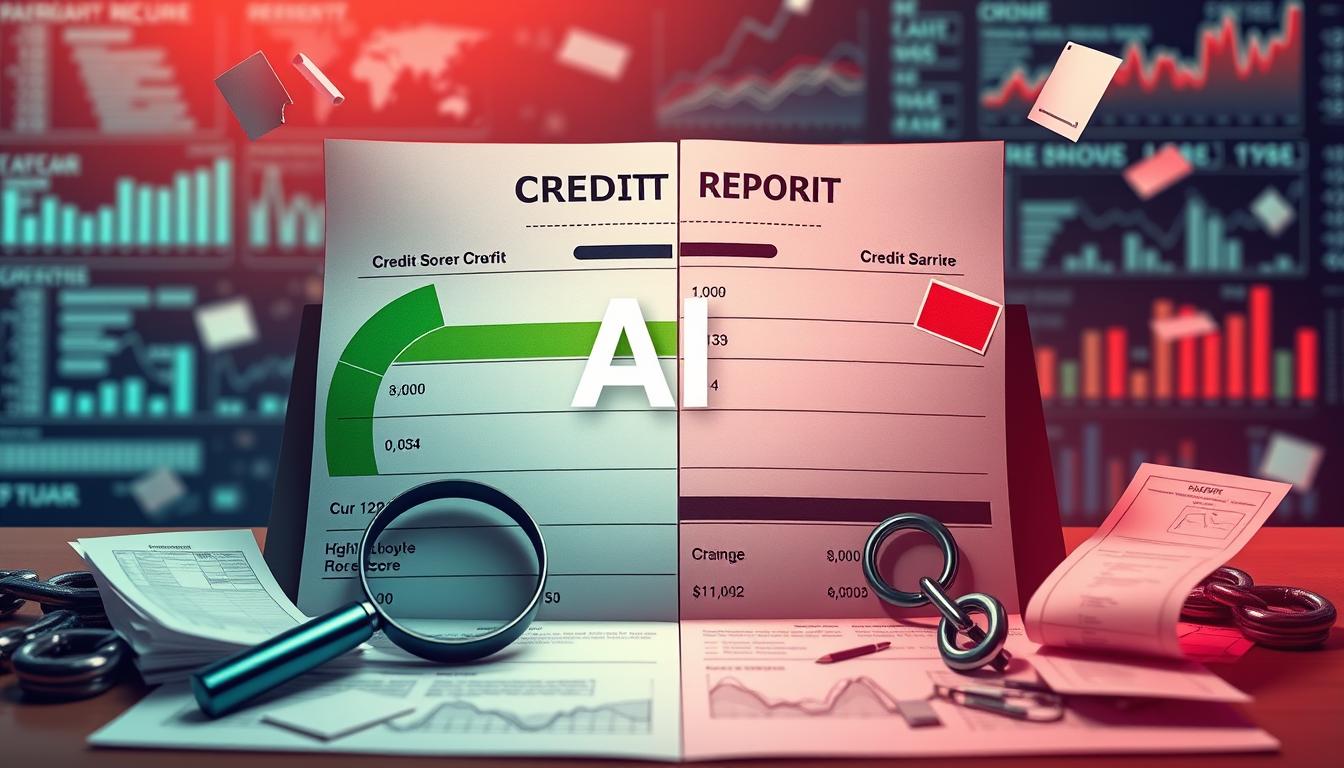Monitoring your credit score is crucial in today’s digital world. Credit Karma, a popular service, offers regular credit updates. However, questions arise about the accuracy of their scores.
This article explores Credit Karma’s reliability and compares it to FICO scores. We’ll discuss when to use Credit Karma and when other sources might be better.
Key Takeaways
- Credit Karma uses the VantageScore model, which can differ from the more commonly used FICO scoring system.
- Factors like credit report discrepancies and the timing of credit report updates can cause Credit Karma scores to vary from other sources.
- While Credit Karma is a useful tool for monitoring your credit, it’s important to understand the potential limitations and differences compared to FICO scores.
- Maintaining a good credit history, including on-time payments and low credit utilization, is crucial for maintaining a strong credit score across all reporting agencies.
- In certain situations, such as when applying for a loan or mortgage, it may be necessary to rely more heavily on FICO scores than Credit Karma’s VantageScore.
Understanding Credit Karma’s Credit Score Calculation
Credit Karma offers valuable insights into your credit score. It uses a different scoring model than the FICO score. Let’s explore how Credit Karma calculates your credit score.
The VantageScore Model Used by Credit Karma
Credit Karma uses the VantageScore model. This alternative system was developed by Experian, Equifax, and TransUnion. VantageScore considers various factors to determine your credit score.
These factors include payment history, credit utilization, and credit mix. Your score is based on a comprehensive evaluation of your credit profile.
Factors Influencing Your Credit Karma Score
Your Credit Karma score is influenced by several key factors. These elements play a crucial role in determining your creditworthiness.
- Payment History: Your history of on-time payments is a significant factor in your credit score calculation.
- Credit Utilization: The amount of credit you’re using compared to your total available credit can impact your score.
- Credit Mix: Having a diverse mix of credit accounts, such as credit cards, loans, and mortgages, can be beneficial for your score.
- Length of Credit History: The longer your credit history, the more positive information lenders can use to assess your creditworthiness.
- New Credit: Applying for and opening new credit accounts can temporarily lower your score, but this impact typically diminishes over time.
Understanding these factors helps you maintain a healthy credit profile. You can take steps to improve your overall credit score.
Comparing Credit Karma Scores to FICO Scores
Credit Karma and FICO scores offer insights into your credit health. These scoring models use different approaches and may not always match up. Understanding their differences is key to grasping your creditworthiness.
Credit Karma uses the VantageScore model, created by three major credit bureaus. FICO scores, however, are the industry standard used by most lenders for credit decisions.
The main differences between Credit Karma and FICO scores are:
- Scoring Range: Credit Karma scores typically range from 300 to 850, while FICO scores range from 300 to 850.
- Factors Considered: The VantageScore model used by Credit Karma places a greater emphasis on factors like credit utilization and recent credit activity, whereas FICO scores weigh payment history more heavily.
- Lender Preferences: Most lenders rely on FICO scores when making lending decisions, as they are the industry standard. Credit Karma scores are primarily for educational purposes and may not be used directly by lenders.
Credit Karma scores and FICO scores serve different purposes. Credit Karma provides a useful estimate of your credit health. However, lenders typically use FICO scores when you apply for credit or loans.
Monitoring both scores gives you a fuller picture of your credit profile. This knowledge helps you make smarter financial choices.
“Keeping track of both your Credit Karma score and your FICO score can give you a more comprehensive understanding of your credit profile and help you make informed financial decisions.”

When Credit Karma Scores May Differ from Other Sources
Your Credit Karma score might not match scores from other sources. This can happen due to credit report discrepancies and timing of credit report updates.
Credit Report Discrepancies
Credit bureaus may have different info about your credit history. This can lead to variations in the scores they generate. It’s crucial to check your credit reports from all three major bureaus regularly.
Reviewing reports from Experian, Equifax, and TransUnion ensures the accuracy of your credit information. This helps you spot and fix any errors that could affect your score.
Timing of Credit Report Updates
The timing of credit report updates can also cause score differences. Credit Karma uses VantageScore, which may update more often than FICO scores. This means your Credit Karma score could reflect recent changes to your credit profile.
Other scores might still be based on older information. This can result in different scores across various platforms.
No single credit score is definitive. Different scoring models and update timings can cause variations in your scores. Monitor your credit from multiple sources to understand your overall credit standing better.

“Monitoring your credit reports and scores from different sources helps identify and address any discrepancies.”
How Off Is Credit Karma Score?
Credit Karma scores are usually reliable but not always 100% accurate. Several factors can affect the difference between your Credit Karma score and lenders’ scores.
Understanding the Potential Variance
Credit Karma uses the VantageScore model, which differs from the widely used FICO score. This can cause differences between your Credit Karma score and lenders’ scores.
The variance in credit karma score can be due to credit report updates and differences in information from credit bureaus.
- Credit report discrepancies: Information from the three major credit bureaus may not always match, causing score variations.
- Timing of credit report updates: Credit Karma scores update often but may not show recent changes to your credit profile.
These potential inaccuracies in credit karma score can be frustrating. However, Credit Karma scores still offer valuable insights into your overall credit health.
For important financial decisions, it’s best to use the lender’s credit score or your FICO score.

“Understanding the potential variance between your Credit Karma score and your actual credit score used by lenders is crucial for making informed financial decisions.”
Factors That Can Cause Inaccuracies in Credit Karma Scores
Credit Karma strives to assess your credit standing accurately. However, discrepancies can occur between their scores and those used by lenders. Understanding these differences helps interpret your Credit Karma score better.
You can take steps to ensure your credit reports are up-to-date and error-free. This knowledge empowers you to maintain a strong credit profile.
Errors in Credit Reports
Credit reporting agencies sometimes make mistakes in recording information. These credit report errors can negatively impact your credit score. Errors may include incorrect payment records or misattributed accounts.
Agencies might also fail to update information promptly. Such mistakes can lead to mismatches between your Credit Karma score and lenders’ scores.
Lender Score Models
Credit Karma uses the VantageScore model, while lenders typically use FICO score models. These models may weigh factors affecting credit karma score accuracy differently.
Despite similarities, the scoring models can result in variations in final credit scores. This difference contributes to potential inaccuracies in your Credit Karma score.
| Scoring Model | Key Factors | Score Range |
|---|---|---|
| VantageScore (Credit Karma) | Payment history, credit utilization, credit age, credit mix, new credit | 300-850 |
| FICO Score | Payment history, amounts owed, length of credit history, types of credit used, new credit | 300-850 |
Understanding credit report errors and differences in lender score models provides valuable insight. It helps you better evaluate your Credit Karma score’s accuracy.
Armed with this knowledge, you can take appropriate steps to maintain a strong credit profile. Regular credit report checks and understanding scoring models are key.

The Importance of Monitoring Your Credit Score
Keeping tabs on your credit score is vital for a healthy financial profile. Regular checks help you catch errors early and protect your creditworthiness. Credit Karma and other sources offer easy ways to track your score.
A key benefit of monitoring is spotting inaccuracies in your credit report. These errors can hurt your score. Quick detection allows you to fix them, keeping your credit info accurate.
Monitoring also helps you stay informed about your financial health. This knowledge guides smart decisions about credit use and payment habits. It’s crucial for maintaining a strong credit profile and reaching financial goals.
| Benefit | Description |
|---|---|
| Identify Errors | Regularly checking your credit score can help you detect any inaccuracies or errors in your credit report, allowing you to address them promptly. |
| Maintain Financial Health | Monitoring your credit score keeps you informed about your overall financial standing, enabling you to make informed decisions about your credit usage and financial planning. |
| Catch Potential Issues | Early detection of any problems or changes in your credit profile can help you take immediate action to protect your creditworthiness. |
To sum up, watching your credit score is crucial for a healthy financial future. Regular checks keep you informed and ready to tackle any issues. This practice safeguards your credit health and supports your financial goals.
Tips for Maintaining a Good Credit Score
A healthy credit score is vital for many financial aspects. It helps secure better loan terms and credit cards. It can even impact job opportunities.
To keep your credit score strong, focus on these key areas:
Payment History
Your payment history greatly affects your credit score. Make on-time payments for all credit accounts. This includes credit cards and loans. Improving payment history shows lenders you’re a responsible borrower.
Credit Utilization
Managing credit utilization is crucial for a good credit score. Keep credit card balances low, under 30% of your limit. This shows lenders you can manage credit responsibly.
Credit Mix
Lenders like to see a diverse credit mix. This includes different types of credit accounts. Examples are credit cards, auto loans, and mortgages. Managing various forms of credit can boost your tips for good credit score.
Practice good credit habits consistently. This helps keep your credit score strong. You’ll enjoy better rates and terms when borrowing money.
| Tip | Description |
|---|---|
| Payment History | Make all payments on time to demonstrate responsible borrowing behavior. |
| Credit Utilization | Keep credit card balances low, ideally below 30% of your available credit limit. |
| Credit Mix | Maintain a diverse mix of credit accounts, such as credit cards, loans, and mortgages. |
“Maintaining a good credit score is like tending to a garden – it requires consistent effort and attention to detail, but the rewards can be plentiful.”
When to Rely on FICO Scores Over Credit Karma
Credit Karma offers a useful credit health estimate. However, FICO scores are more important in certain situations. Lenders typically use FICO scores when evaluating loan or mortgage applications.
Financial institutions widely use FICO scores. These scores can greatly affect your interest rates and loan terms. Credit Karma scores may not match lenders’ metrics, causing potential discrepancies.
Focus on FICO scores when seeking major financing. This ensures your credit profile is accurately represented. It also increases your chances of securing favorable loan terms.
FICO scores are more comprehensive and predictive of future credit behavior. They consider payment history, credit utilization, and credit history length. These factors make FICO scores more reliable for overall creditworthiness assessment.

